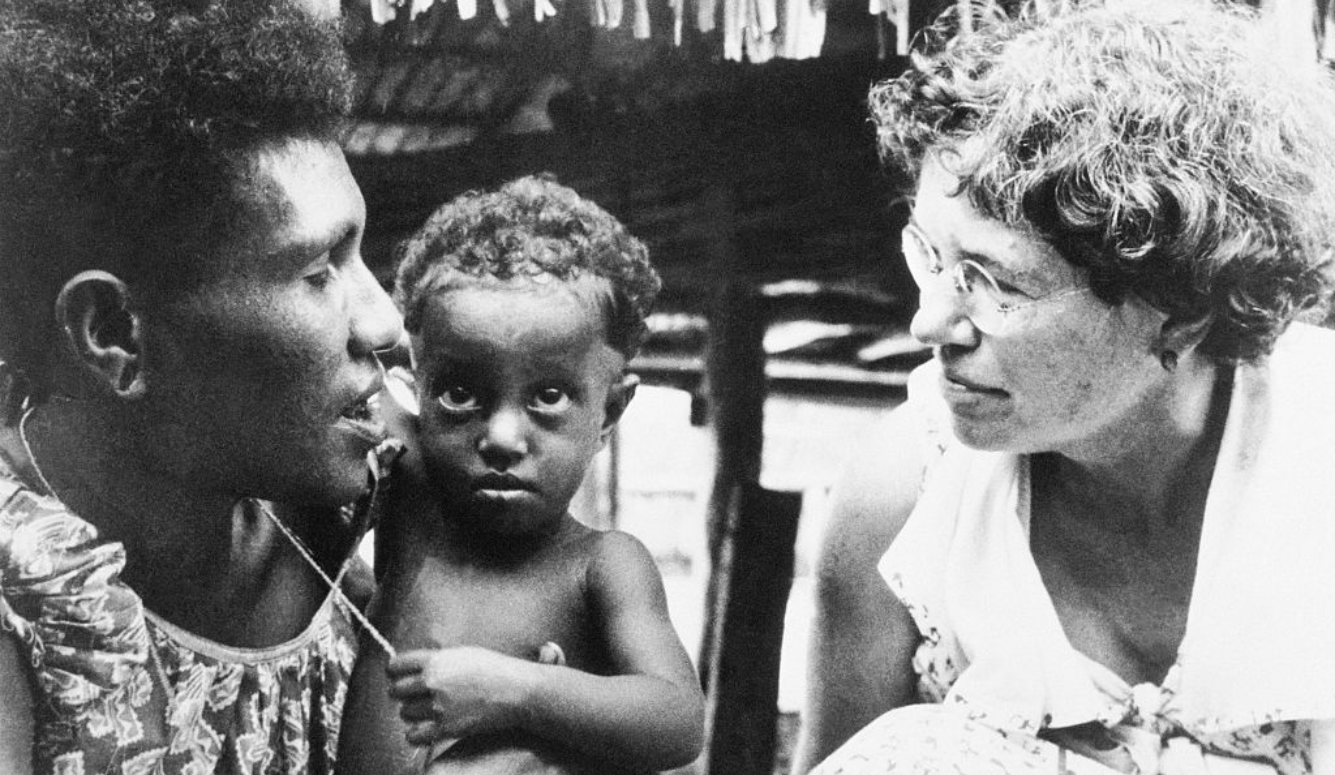Art and Culture
Are Liberals Dying Out?
The evidence for the heritability of psychological traits is immense.

By now there is a huge body of literature in behavioral genetics, which shows that pretty much every psychological characteristic we can measure is to some degree heritable. This raises a question that has received little discussion beyond academia – what about political views? Are they heritable? And if so, what does this mean for the political landscape of future generations?
The evidence for the heritability of psychological traits is immense. The authors of a recent meta-analysis published in Nature Genetics looked at 2,748 publications surveying 17,804 traits. They found that “estimates of heritability cluster strongly within functional domains, and across all traits the reported heritability is 49%.”
These results shouldn’t be surprising. If offspring didn’t resemble parents to some degree, evolution as we understand it could not occur. Indeed, according to the Darwinian paradigm, evolution takes place through variation and selection.
Imagine, for example, that you wanted to domesticate a wild animal. Foxes are cute, so let’s talk about them. One thing we know about foxes is that some of them are naturally aggressive, while others are more docile. Suppose you decide to mate the most gentle males with the most gentle females. Do the same thing for a number of generations, and eventually you’ll have an animal that more closely resembles a modern dog than a fox.
As it turns out, the previous example isn’t just a thought experiment. Dogs almost certainly evolved from wolves by a combination of natural and artificial selection as they began to engage with people. A landmark scientific study helped shed light on how modern dogs could be domesticated in a relatively small number of generations. The study showed vividly how assortative mating and differential reproduction can transform the characteristics of a population. When a trait is heritable, and organisms mate non-randomly for that trait, the presence of the trait can become both clustered and accentuated in subsequent generations.
Biology and Ideology
Is political ideology like height and aggression and hair color? Is it heritable?
The answer to this question depends on a couple of things. First, it depends on whether people vary in their political attitudes. Second, it depends on the reason why people vary in their political attitudes. It’s the second question that can be a bit tricky to answer. For starters, it is widely understood that there is a correlation between the political views of parents and their children. But this correlation doesn’t tell us much about the source of the resemblance between parents and offspring. Children could reflect the political views of their parents because they share a location with them, or their parents might influence their child’s political views through social means. Peers might also have an impact. So, how can we pull apart all of these factors which might influence political belief?
The most straightforward way to tease apart genetic and environmental influences on the personality traits that underlie political inclinations is to study siblings, and in particular to study identical and fraternal twins. The advantage of a twin analysis is that you can directly calculate the relative contributions of genetic and environmental factors to some trait, including political beliefs.
In a 2014 study, Peter Hatemi and colleagues analyzed a large sample of identical twin pairs from Australia, Sweden, and the United States. Their results are striking. They conclude that the data collected thus far suggests “genetic factors play a role in the formation of political ideology, regardless of how ideology is measured, the era, or the population sampled.” Their findings are based on questionnaires given to the participants to test personality traits that incline people to put more weight on individualism vs collectivism, or on individual liberty vs material equality. The only exception is a question that explicitly uses the phrase “Left-Right.”
Most individuals have some conception of a difference between “left-leaning” and “right-leaning” or liberal versus conservative beliefs. Even so, people have very different and potentially inconsistent opinions about what the “Left-Right” political spectrum consists of. As Hyrum Lewis has put it recently:
The political spectrum creates confusion. It tells us, for example, that both fascist Adolf Hitler and libertarian Milton Friedman are on the “far right,” yet Hitler advocated nationalism, socialism, militarism, authoritarianism, and anti-Semitism, while Milton Friedman advocated internationalism, capitalism, pacifism, civil liberties, and was himself a Jew.
George W. Bush’s big-government, militarist philosophy is considered “right wing” as is Rand Paul’s small-government, anti-militarist philosophy. We say that liberals believe in free speech and conservatives believe in free markets, yet moving to the “extreme left” means clamping down on free speech (as with Stalin or Mao) and moving to the “extreme right” means clamping down on free markets (as with National Socialism).
Asking people whether they identify as being on the Left or Right, then, is not of much help. Better to be more specific when you can. And although “liberal” and “conservative” are also sometimes used in vague and inconsistent ways, political psychologists argue that these terms tend to correlate with psychological traits like openness to experience, sensitivity to disgust, and a tendency to presumptively respect or reject traditional social structures.[1]

The Demographic Divide
Why is this important to think about?
People are selective, especially when searching for long-term mates. Sometimes we respond unconsciously to fitness cues, as when we find symmetrical features and smooth skin attractive. But we also consciously select long-term partners based on shared values and interests. If people tend to marry those who share their basic values, and if the values that shape our political allegiance are heritable, then a small difference in fertility rates between different populations – that is, the number of children people choose to have – can grow into a large difference in the characteristics of a population over a few generations.
This is something that liberals in particular should worry about. There are fairly noticeable differences between the fertility rates in Red States vs Blue States in the U.S. (that is, in states with high proportions of liberals vs conservatives). Predominantly conservative states like Kansas, Oklahoma, and Alaska have a markedly higher number of births per capita than predominantly liberal states like Vermont and Massachusetts.
While there is a noticeable difference in fertility between liberals and conservatives, it is not clear why. For example, educated people tend to have more socially liberal political views, either because liberals seek out higher education or because higher education tends to lean in a politically liberal direction. The demographic divide might be partly explained by the fact that religious conservatives tend to be less willing to use contraception, and that they more generally tend to value children and traditional family life. Part of the explanation could also be that people often become more conservative when they have children. There is, after all, some degree of flexibility in political beliefs even if the psychological propensities that tend to incline us in one way or another are partly genetic.
Whatever the best explanation for this broad demographic divide, more specific measures of political ideology are especially worth zooming in on. Right Wing Authoritarianism in particular shows high levels of heritability and is correlated with traditionalism and in-group favoritism, both of which contrast with liberal ideals. Right Wing Authoritarianism is a technical term that political psychologists use to characterize a certain kind of conservatism. An example of a statement Authoritarians agree with is the following:
“Our country desperately needs a mighty leader who will do what has to be done to destroy the radical new ways and sinfulness that are ruining us”
They tend to agree less with statements like this:
“Homosexuals and feminists should be praised for being brave enough to defy “traditional family values”
Liberals might have a reason worry about the future of politics if conservatives who score high on the Authoritarianism scale are having more children.
Secular liberals might also have a reason to worry about the relationship between religiosity (typically associated with social conservatism) and fertility. According to the most recent demographic projections, the share of individuals with no religious affiliation is projected to decline markedly over the next few decades. As Jonathan Haidt emphasizes:
Societies that forgo the exoskeleton of religion should reflect carefully on what will happen to them over several generations. We don’t really know, because the first atheistic societies have only emerged in Europe in the last few decades. They are the least efficient societies ever known at turning resources into offspring.2
This is not an argument in favor of conservatism or religious belief. It is only an observation that political orientation is heritable, that religious conservatives tend to have more children than liberals and atheists, and that, as the authors of an influential study conclude, “the heritability of [political] orientation in combination with assortative mating may exacerbate the current [political] divide.”
Of course, it is silly to claim that genes fully determine political ideology. We all know people who have different political views than their parents. Moreover, it may be true that many people take their cue about what to believe from high status people like influential celebrities and university professors. If so, to the extent that elites are (currently) more likely to espouse liberal political views, such views may persist and spread to a greater degree than they would if each person was left to her own devices to form a political identity.
Nevertheless, despite cultural trends, the best available evidence suggests that political ideology is heritable, and that people with liberal personality traits currently have far fewer children than conservatives. If this trend continues, it is possible that the reproductive choices people are making today will influence the political climate of future generations. Over the long run, conservatives could end up winning the ideological contest with fertility rather than arguments.
Endnotes:
[1] We defer to political psychologists in using these terms in a somewhat technical way that corresponds closely to the contemporary American usage. Both the authors would describe themselves as classical liberals in the sense that we think individual liberty should be treated as a moral default. But classical liberalism of the kind we endorse – espoused by John Locke, David Hume, Adam Smith, and J.S. Mill – can be thought of as in some ways liberal and in other ways conservative by contemporary standards.
[2] The Righteous Mind, p. 313






